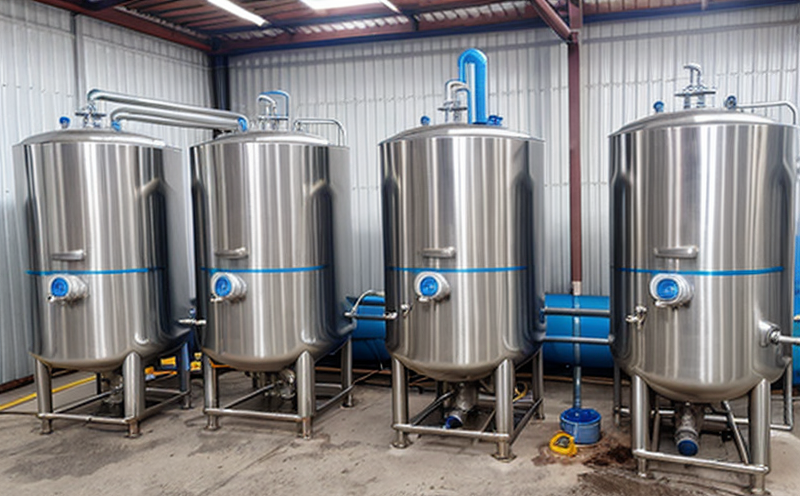ISO 19458 Microbiological Analysis in Boiler Water
The ISO 19458 standard provides a framework for microbiological analysis of boiler water, which is critical for maintaining efficient and safe operation of industrial boilers. This service ensures that the microbial content of boiler water remains within acceptable limits to prevent scale formation, corrosion, and potential biofouling.
Microbial contamination in boiler systems can lead to significant operational issues. Scale formation due to microorganisms can reduce heat transfer efficiency, leading to increased fuel consumption and maintenance costs. Corrosion caused by microbial activity can shorten the lifespan of equipment, necessitating costly replacements or repairs. Biofouling can also interfere with water flow and distribution within the system.
The primary goal of ISO 19458 microbiological analysis is to identify and quantify microorganisms in boiler feedwater and circulating systems. This includes bacteria, fungi, and other microscopic organisms that may be present. The standard outlines methods for sampling, sample preparation, and analytical techniques used to determine the microbial load.
Sampling typically involves collecting water samples from various points within the boiler system, including feedwater, condensate, and return water. These samples are then analyzed using microbiological culture methods or molecular techniques such as quantitative PCR (qPCR). The results provide a comprehensive understanding of the microbial population present in the system.
Once the analysis is complete, detailed reports are generated that outline the findings. These reports include the identity and concentration of microorganisms detected, along with recommendations for corrective actions if necessary. Compliance with relevant regulations such as ASME PVP-126 (American Society of Mechanical Engineers Process Vessels and Pressure Piping) and EN 14075:2018 is ensured through this process.
| Sample Points | Analysis Methodologies | Reporting Parameters |
|---|---|---|
| Feedwater, Condensate, Return Water | Culture Methods, qPCR | Bacterial Count, Fungal Load, Species Identification |
Industry Applications
- Power Generation Plants
- Chemical Processing Industries
- Petrochemical Facilities
- Agricultural Irrigation Systems
| Industry Sector | Main Challenges Addressed |
|---|---|
| Power Generation Plants | Reduction in operational costs, extended equipment lifespan |
| Chemical Processing Industries | Minimization of environmental impact, improved product quality |
International Acceptance and Recognition
The ISO 19458 standard is widely recognized by international bodies such as the International Organization for Standardization (ISO), American Society of Mechanical Engineers (ASME), European Committee for Standardization (CEN), and others. Its acceptance ensures that results are universally understood and comparable across different regions.
Many countries have adopted ISO 19458 into their national standards, making it an essential tool for ensuring compliance with local regulations. This standard is particularly important in industries where water quality plays a crucial role in operational efficiency and safety, such as power generation plants and chemical processing facilities.
The widespread adoption of this standard reflects its importance in maintaining the integrity of boiler systems worldwide. By adhering to ISO 19458 guidelines, organizations can demonstrate their commitment to environmental sustainability and regulatory compliance.
Use Cases and Application Examples
- Treatment of Boiler Water to Prevent Scale Formation
- Monitoring Biofouling in Cooling Systems
- Evaluation of Chemical Treatment Effectiveness
- Detection of Pathogenic Microorganisms
| Use Case | Main Outcomes |
|---|---|
| Treatment of Boiler Water to Prevent Scale Formation | Reduction in fuel consumption, extended equipment lifespan |
| Evaluation of Chemical Treatment Effectiveness | Informed decisions for process optimization and cost savings |





